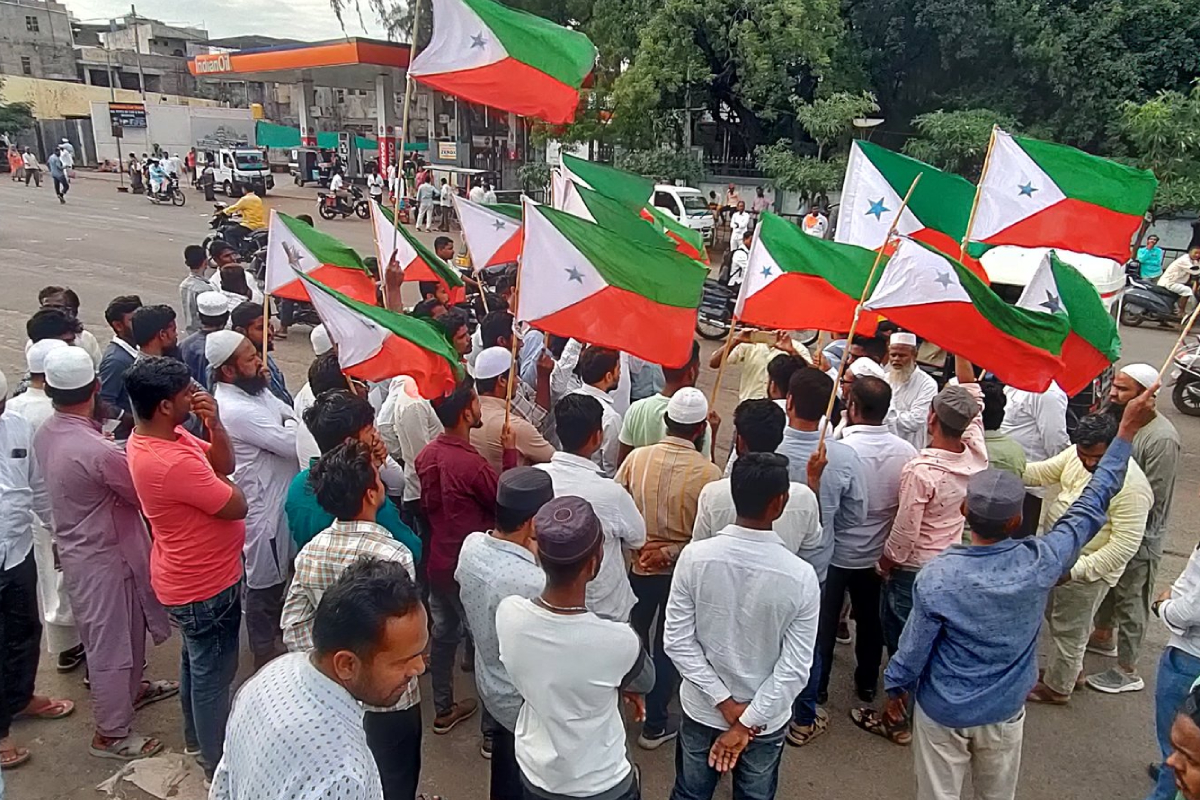After the Central Government on September 28 banned the Popular Front of India (PFI) and eight of its affiliated organizations for five years with immediate effect, the investigative agencies feel that its cadres followed the modus operandi of ‘Muslim Brotherhood’ and carried out their work “secretly”.
The National Investigation Agency (NIA) is probing at least 19 cases related to the PFI across the country. The banned outfit is also being investigated by the Enforcement Directorate (ED) in money laundering cases. The state police force of Delhi, Uttar Pradesh, Madhya Pradesh and Maharashtra are also looking into the cases related to PFI.
A central agency source said that the PFI carried out its activities against the country covertly as they followed the modus operandi of “Muslim Brotherhood” which is operational in European countries.
“The PFI cadres and members built their organization by focusing on the legal framework and then became financially strong as they kept receiving funds from overseas and from a section of the Muslims in India,” the source claimed.
Elaborating on how PFI built its strong organization, the source revealed, “They did everything under the legal framework. They kept a long fight in mind and thus meticulously channelized the funds they received as donations.”
The source continued: “Even the content of the official website of the PFI was tactfully written. It mentioned the fight for the rights of the poor, marginalized, minorities and downtrodden. Thus banning the website of the organization was not an easy task for agencies.”
Last month, the NIA, ED and the state police arrested 106 activists of the PFI from 93 locations across 15 states, including Kerala, Tamil Nadu, Maharashtra, Telangana, Assam, Andhra Pradesh and Delhi. According to NIA, the PFI forced youngsters to join proscribed terror organizations like Al-Qaeda, Lashkar-e-Taiba, ISS and others.
The NIA also alleged that it was encouraging youngsters to indulge in anti-national activities. During its searches, the investigative agency also seized documents related to the “targeting of prominent leaders of a particular community”.
The anti-terror probe agency also claimed the “seized hit list clearly shows that the PFI has gone far ahead in creating tensions between communities.” NIA further said the PFI leaders took part in terrorist activities and were making efforts to bring Islamic Caliphate to India.
PFI was formed in 2006 after the merger of Kerala’s National Development Front (NDF), Tamil Nadu’s Manitha Neethi Pasarai (MNP) and Karnataka’s Forum for Dignity. Most of its frontline leaders are from Kerala, including many former members of the SIMI which was banned in 2001.
Since its inception, PFI members have been involved in many criminal activities including political murders in Kerala. In 2015, 13 PFI members were awarded life-term for chopping the hands of a college professor TJ Joseph, who prepared a question paper alleged to be blasphemous, in Kerala.
PFI has allegedly been at the forefront of many violent activities recently such as the protests against the Citizenship Amendment Act (CAA) in 2018, Delhi riots in 2020, unrest in Malwa region of Madhya Pradesh in 2021, the hijab row in Karnataka and Karauli violence in Rajasthan.
In December 2019, UP Police arrested over 133 workers of the PFI for their alleged involvement in violence related to anti-CAA protests. In the last one year, three Rashtriya Swayamsevak Sangh (RSS) workers were killed in Kerala allegedly by the Social Democratic Party of India, which is the political wing of the PFI.
The PFI has, however, repeatedly rejected the claims of its role in communal violence and violent attacks. It has maintained it works for the rights of minorities and has its units in more than 20 states across India.

















